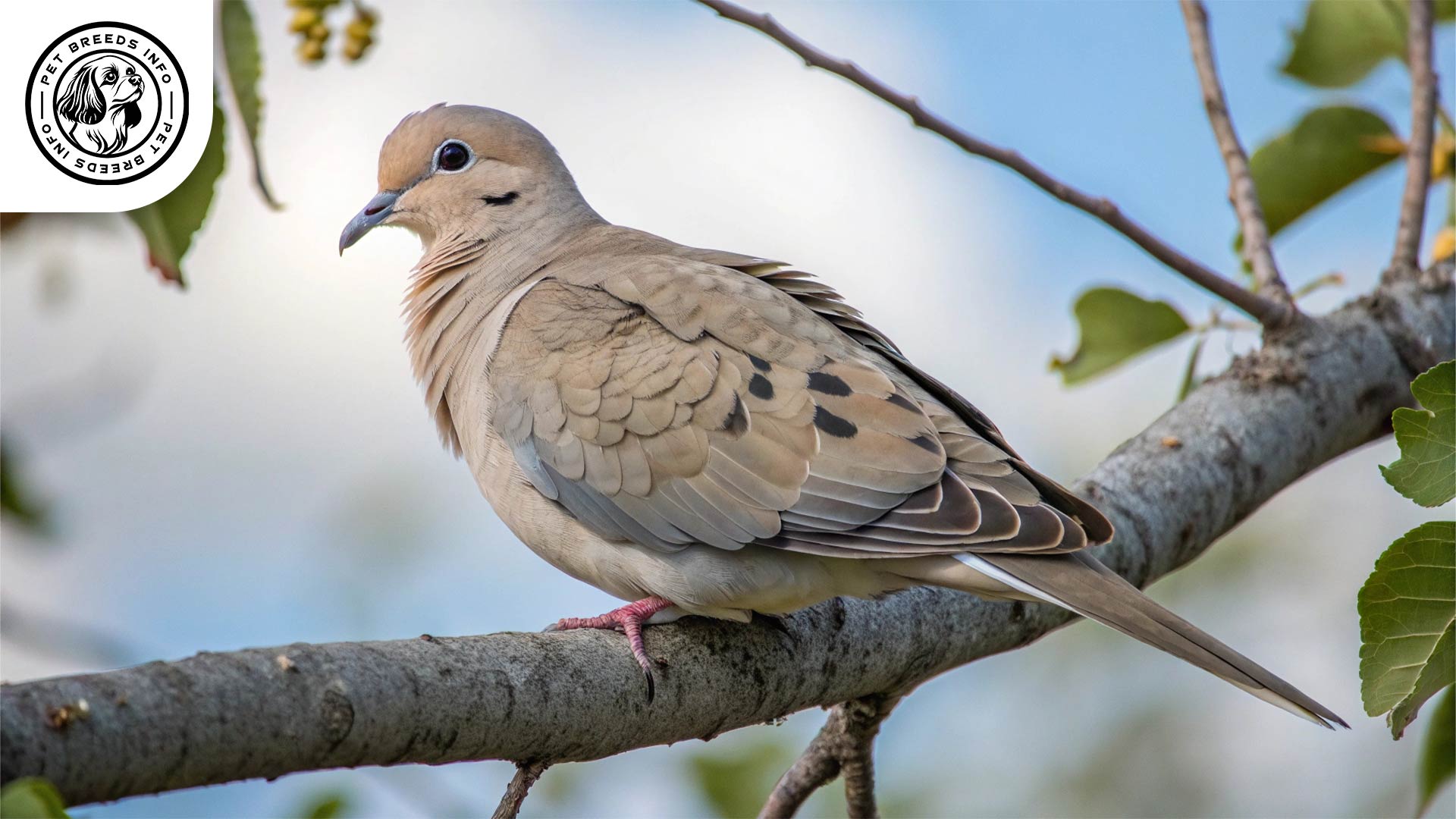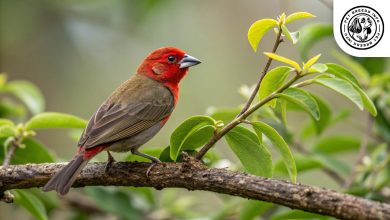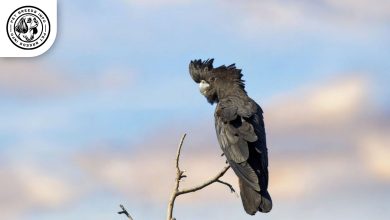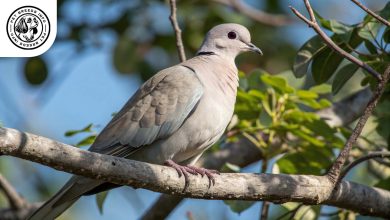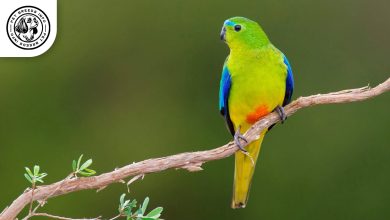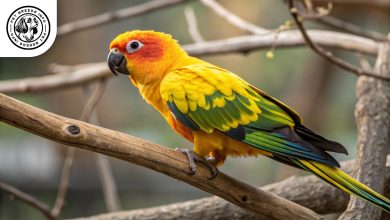Mourning Dove Breed: Personality, Lifespan, Food & Care
General Introduction of the Breed
The Mourning Dove (Zenaida macroura), also known as the American Mourning Dove or Rain Dove, is a graceful bird native to North and Central America. It is one of the most widespread and recognizable doves, known for its soft, sorrowful cooing sound.
This species has a long history of coexistence with humans and plays an essential role in ecosystems as both prey and seed dispersers. They have been admired for their gentle nature and have frequently appeared in art and literature as symbols of peace and love.
Table of Contents
| Common Name | Mourning Dove |
| Scientific Name | Zenaida macroura |
| Origin | North and Central America |
| Size | 9–13 inches in length; 17–18 inch wingspan |
| Lifespan | 5–7 years (wild); up to 15 years (captivity) |
| Colors | Light brown-gray with black wing spots |
| Talking Ability | Very limited; soft cooing only |
| Noise Level | Low; soft and calming vocalizations |
| Social Behavior | Peaceful, pairs well with other gentle birds |
Physical Characteristics
Mourning Doves are medium-sized birds, typically measuring between 9 to 13 inches in length with a wingspan of about 17 to 18 inches. They usually weigh between 4 to 6 ounces.
Their plumage is light brownish-gray with black spots on the wings and pale underparts. Their eyes are dark, round, and expressive, often accentuated by a light-blue ring.
They have small, delicate ears that are not externally visible. Their long, pointed tail features a characteristic white or light-tipped edge, which can be seen in flight. Their slender build and sleek feathers give them a graceful appearance.
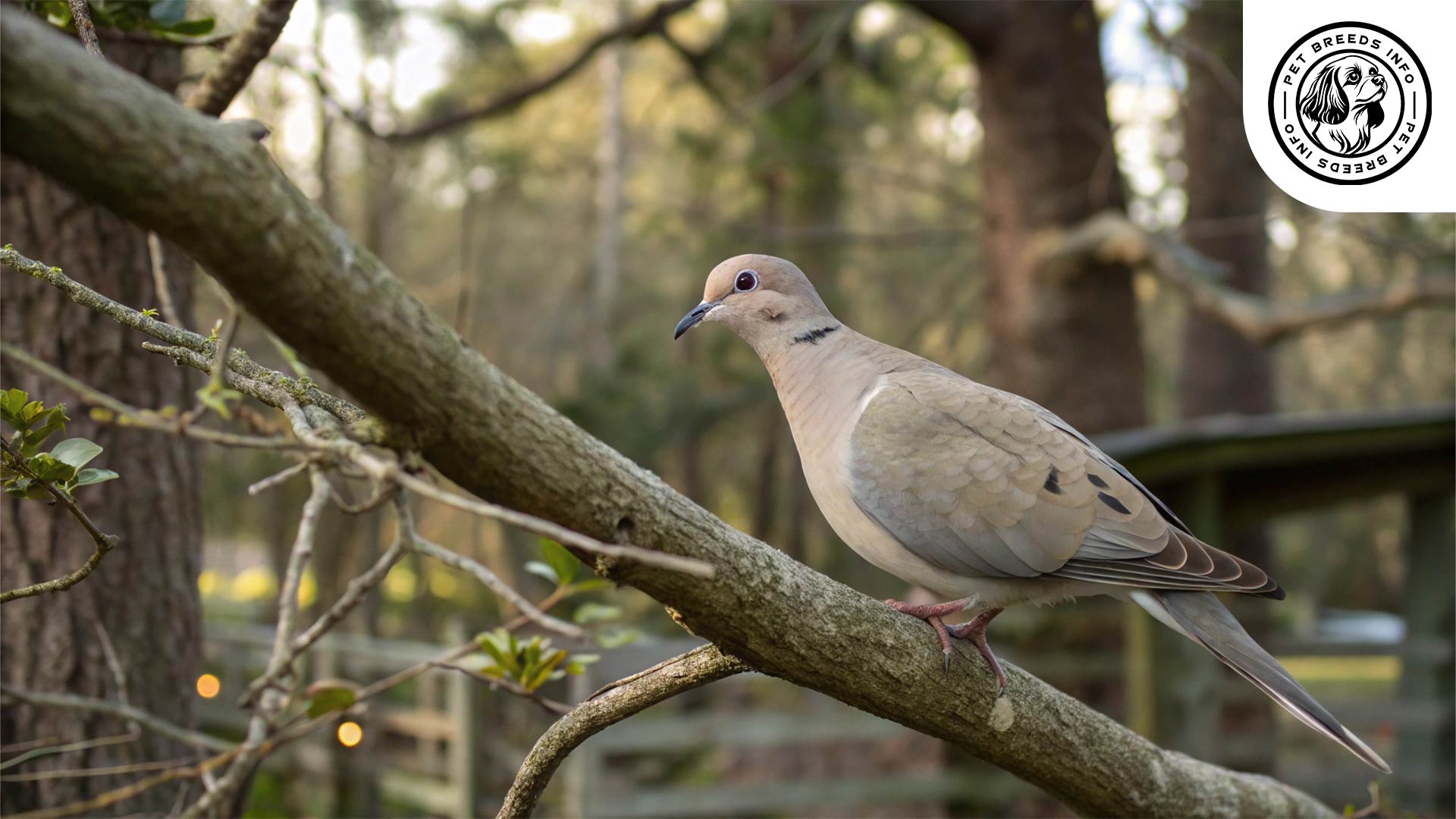
Personality and Temperament
Mourning Doves are known for their gentle and peaceful nature. They are fairly intelligent birds and can adapt well to different environments. Though they are generally shy around humans, they can become accustomed to familiar faces.
They are moderately active, spending much of their time foraging on the ground for seeds. They are not known for being highly social with humans but do interact well with other doves.
Though not as affectionate as domesticated birds, a Mourning Dove can develop a level of trust with regular care and hand-feeding. They are sensitive creatures and can be easily startled by loud noises or sudden movements.
Care and Maintenance Requirements
Mourning Doves require outdoor or aviary environments to thrive. If kept as a pet, a spacious enclosure with perches and room to fly is essential. They can also be encouraged to visit gardens with well-placed bird feeders.
They have minimal grooming requirements since they naturally maintain their feathers through preening. Providing a shallow dish of water for bathing can help them stay clean. Regular enclosure cleaning is also necessary to prevent bacterial buildup.
These birds are sensitive to extreme cold and require shelter during winter months. They thrive best in moderate climates with access to natural sunlight and fresh air.
Diet and Nutrition
Mourning Doves primarily feed on seeds, grains, and small fruits. A diet consisting of millet, sunflower seeds, cracked corn, and wild bird seed mix is best suited for them.
It is important to avoid foods such as chocolate, caffeine, avocados, and processed human food, as these can be toxic to birds.
Read More: White-rumped Munia Bird
They consume small portions throughout the day, typically feeding twice daily. Access to clean, fresh water is also essential for their health.
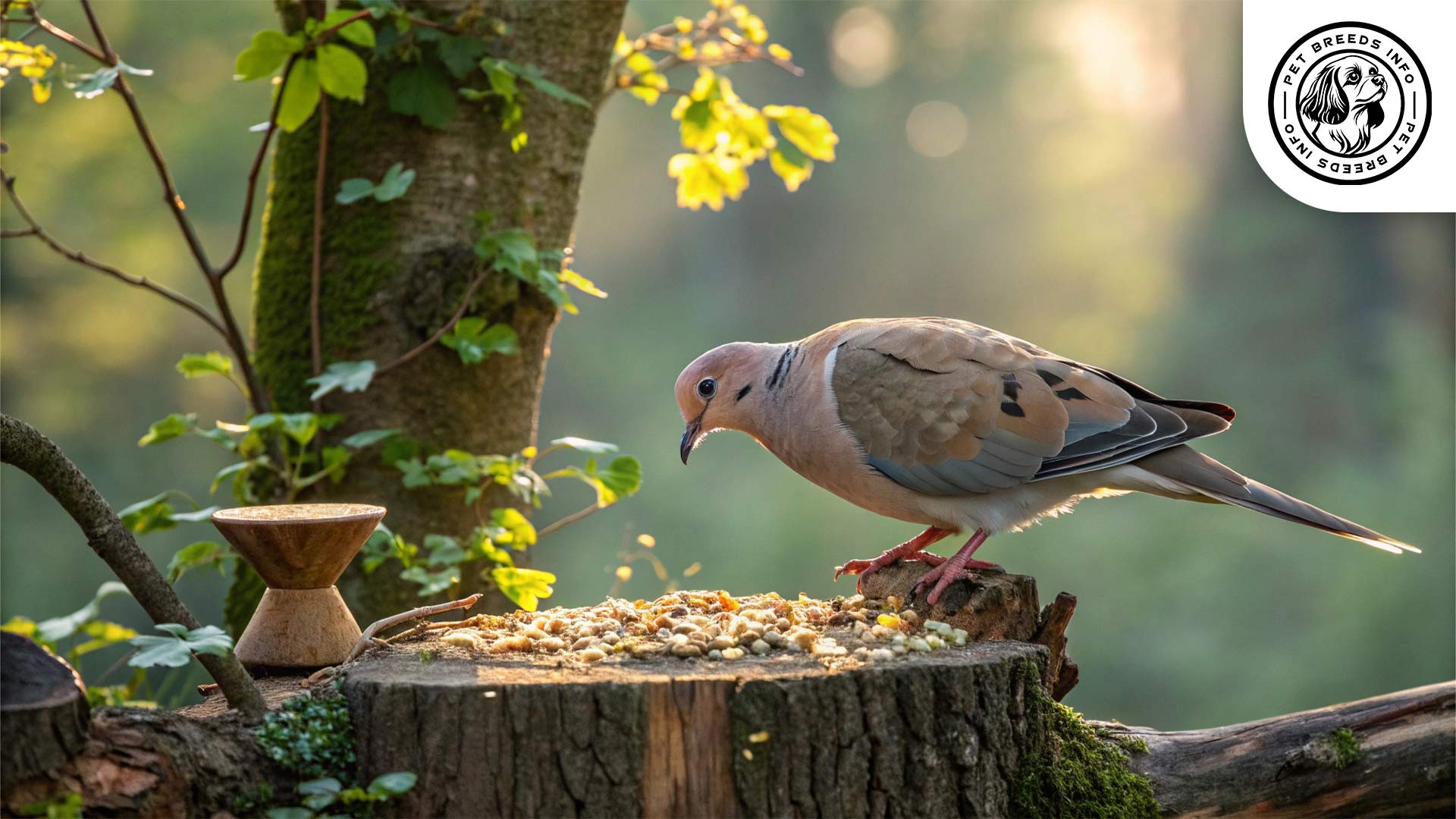
Health and Common Medical Issues
Mourning Doves are generally hardy birds but are vulnerable to certain health issues, including respiratory infections, parasites, and avian pox. Proper hygiene and a clean living environment help prevent many common diseases.
They have an average lifespan of about 5 to 7 years in the wild, but in captivity, they can live up to 10 to 15 years with proper care.
Regular veterinary check-ups are essential to monitor their health and address any emerging issues early.
Training and Behavior Management
Due to their gentle and somewhat shy nature, Mourning Doves are not highly trainable like parrots. However, they can be conditioned to accept food from hands and become comfortable around their caregivers.
Read More: Winter Gold Macaw (Hybrid) Bird
Patience and a calm approach are key when interacting with them. Avoid handling them too frequently, as they may become stressed.
Interaction with Other Animals and Humans
Mourning Doves are generally peaceful and non-aggressive. They can coexist well with other doves and similar-sized birds in aviaries, though they may be vulnerable to larger or more aggressive species.
They can be observed in gardens and backyards, often gathering in flocks. They are known for forming strong pair bonds with mates and showing affectionate behavior toward their partners.
They are better suited for bird enthusiasts rather than active companions, as they are more observational pets than interactive ones.
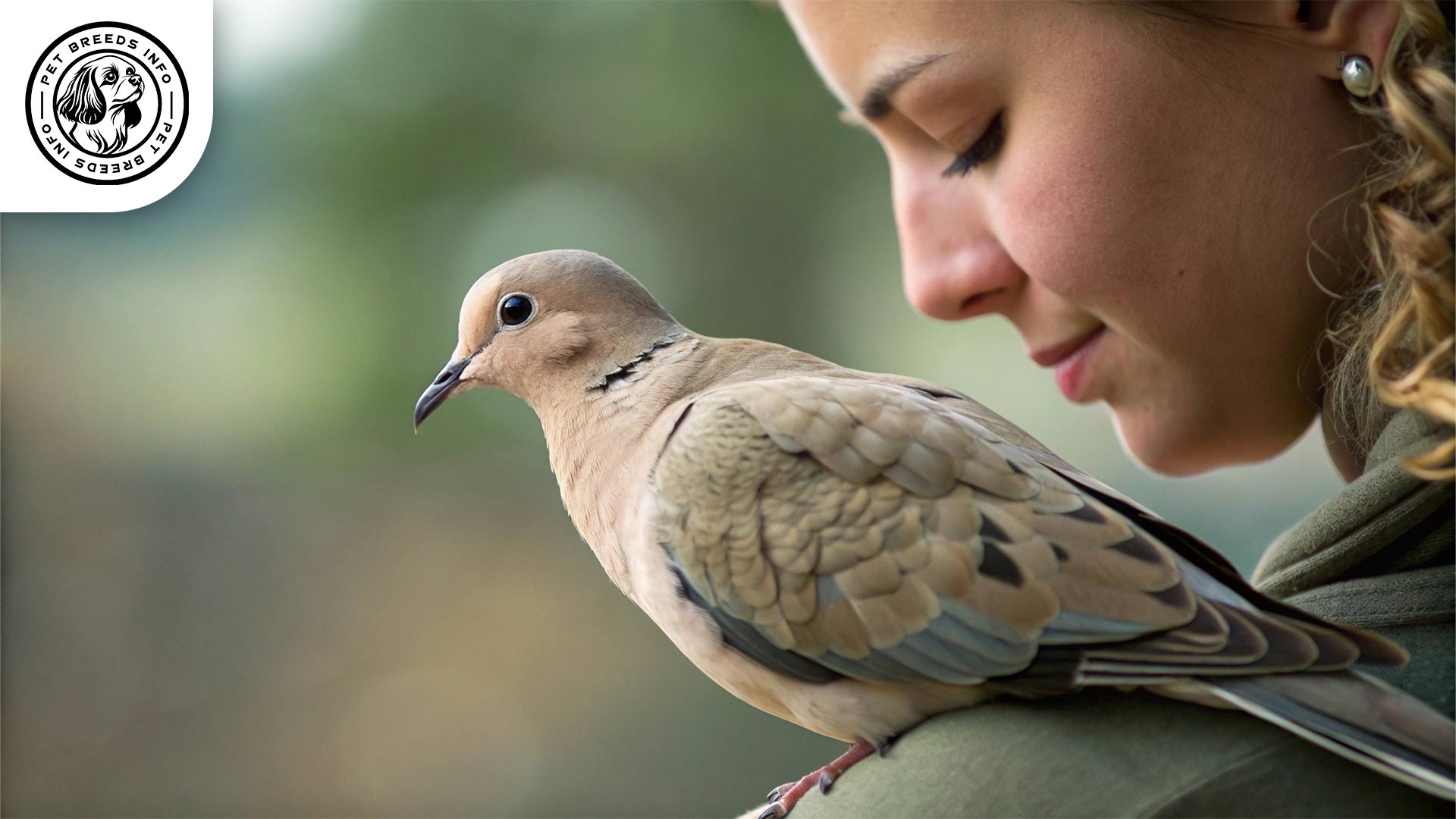
Price and Availability
Mourning Doves are not typically sold as pets, as they are wild birds commonly found in North and Central America. However, they may be rehabilitated or adopted through wildlife rescue organizations.
If acquiring a dove, ensure it comes from a reputable breeder or adoption center that follows legal and ethical guidelines for bird care.
Conclusion and Final Thoughts
Mourning Doves are beautiful, peaceful birds that bring serenity to any outdoor environment. While not traditionally kept as pets, they can be observed and enjoyed in gardens and aviaries.
Read More: Wood Duck
They are best suited for bird enthusiasts who appreciate their natural behaviors rather than individuals seeking a hands-on pet. Providing them with a proper diet, safe shelter, and minimal disturbance are key factors in their well-being.
If you are looking for a low-maintenance bird that adds charm to your outdoor space, the Mourning Dove may be the perfect addition to your environment.
FAQ
Are Mourning Doves good pets?
Mourning Doves are not traditional pets but can be kept in aviaries. They’re more suited for observation than interaction.
Can Mourning Doves talk or mimic sounds?
No, they do not mimic speech. Their vocal range is limited to soft, sorrowful coos.
What do Mourning Doves eat?
Their diet consists mainly of seeds like millet, sunflower seeds, and cracked corn, with occasional fruits.
Can Mourning Doves live indoors?
They are best kept in outdoor aviaries or large enclosures with fresh air and sunlight; they’re not ideal for indoor life.
